Analysis of Tesla Motors' Supply Chain Management Strategies
VerifiedAdded on 2021/05/30
|8
|553
|23
Report
AI Summary
This report provides an analysis of Tesla Motors' supply chain management. It begins with an overview of Tesla, its products, and its commitment to sustainable practices. The report delves into key aspects of Tesla's supply chain, including its adoption of just-in-time inventory management, risk management strategies, and supply chain synchronization through its supplier portal. The report also highlights Tesla's agility and responsiveness in adapting to customer feedback. It examines the company's approach to supply chain risks, such as delivery delays, and emphasizes the importance of effective supplier relationships. The report concludes with recommendations for improving Tesla's supply chain management, including a focus on sustainability, CSR activities, and the implementation of ERP software. The analysis is supported by references to relevant academic and industry sources.
1 out of 8
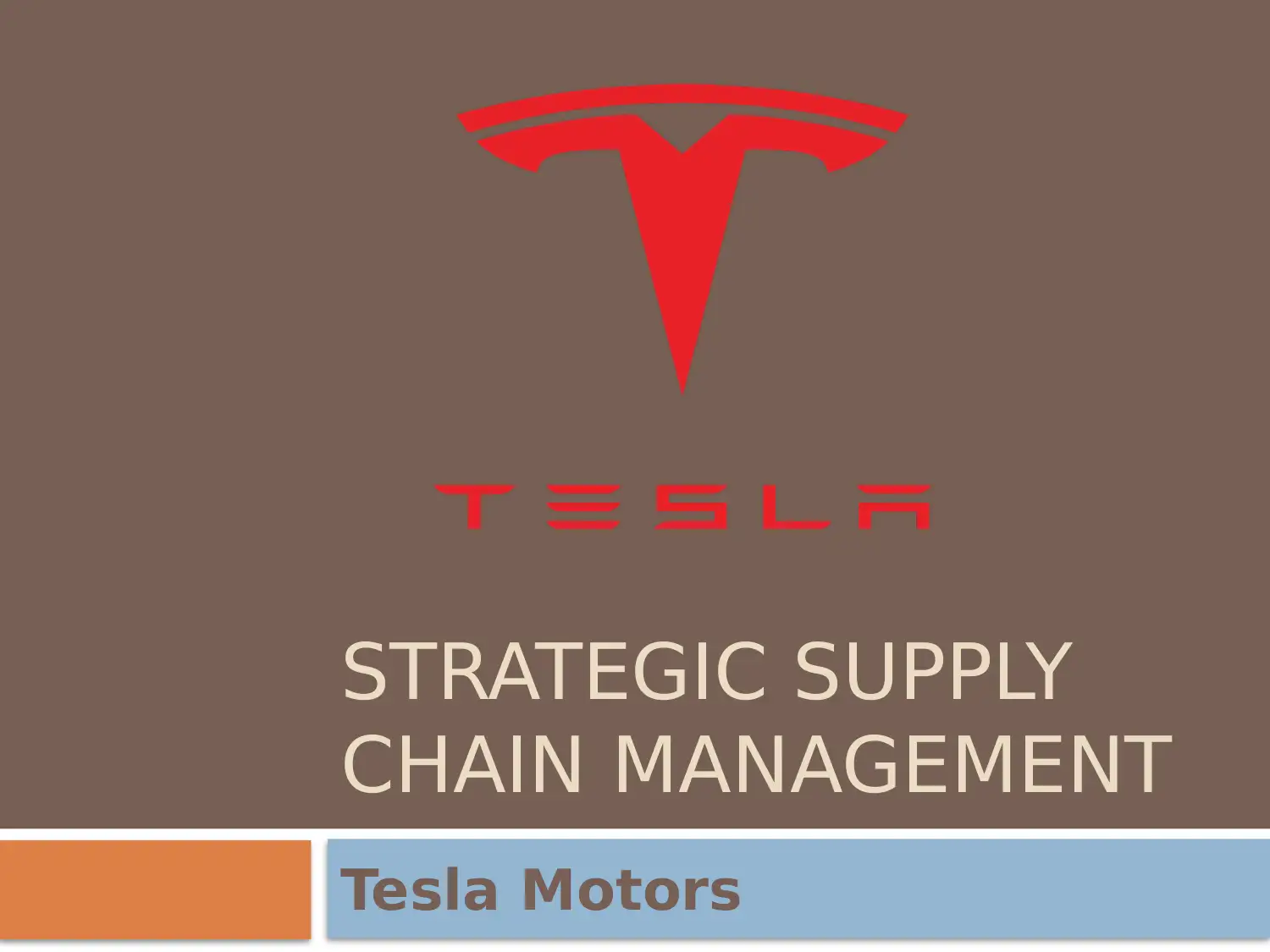
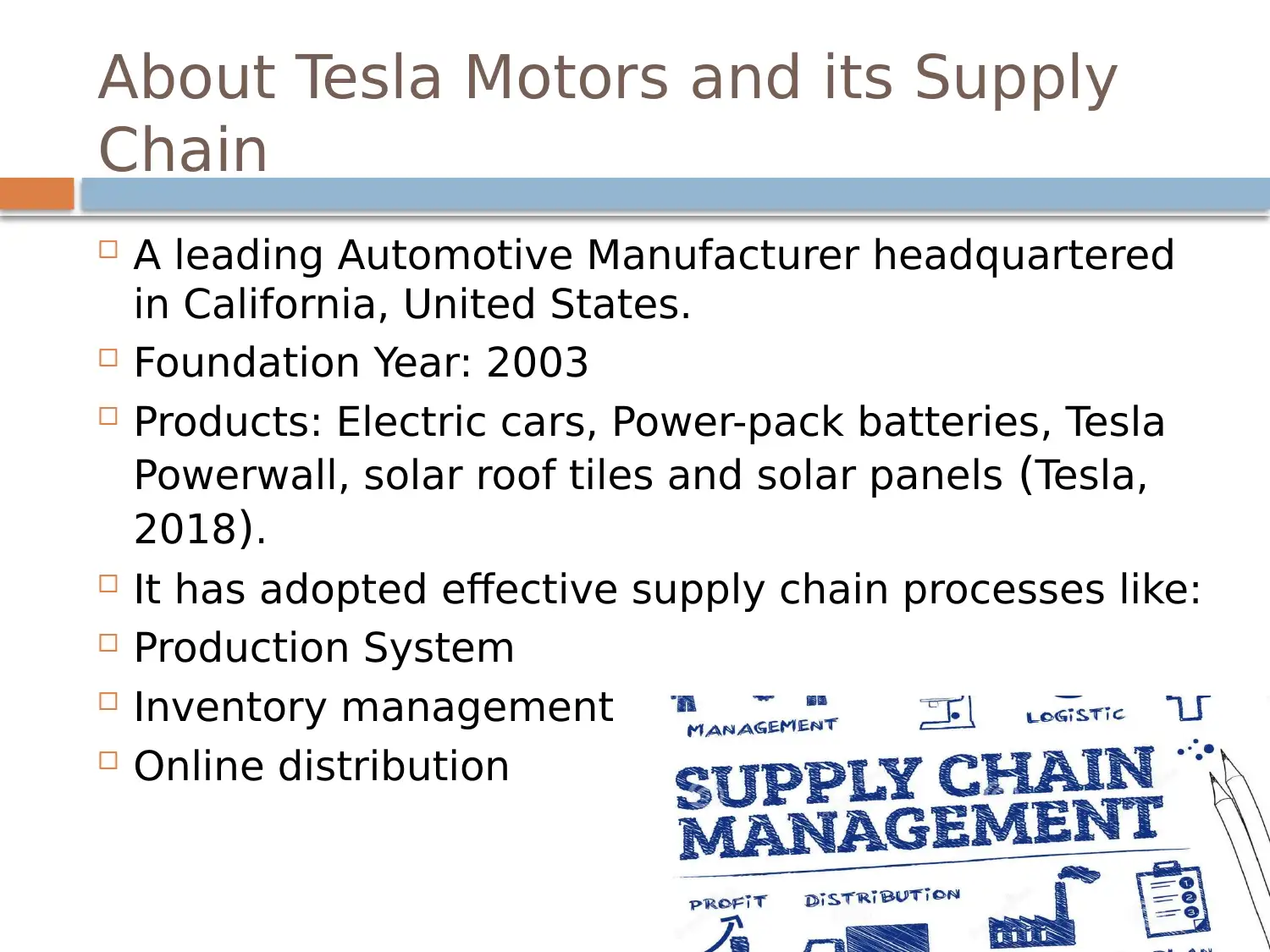
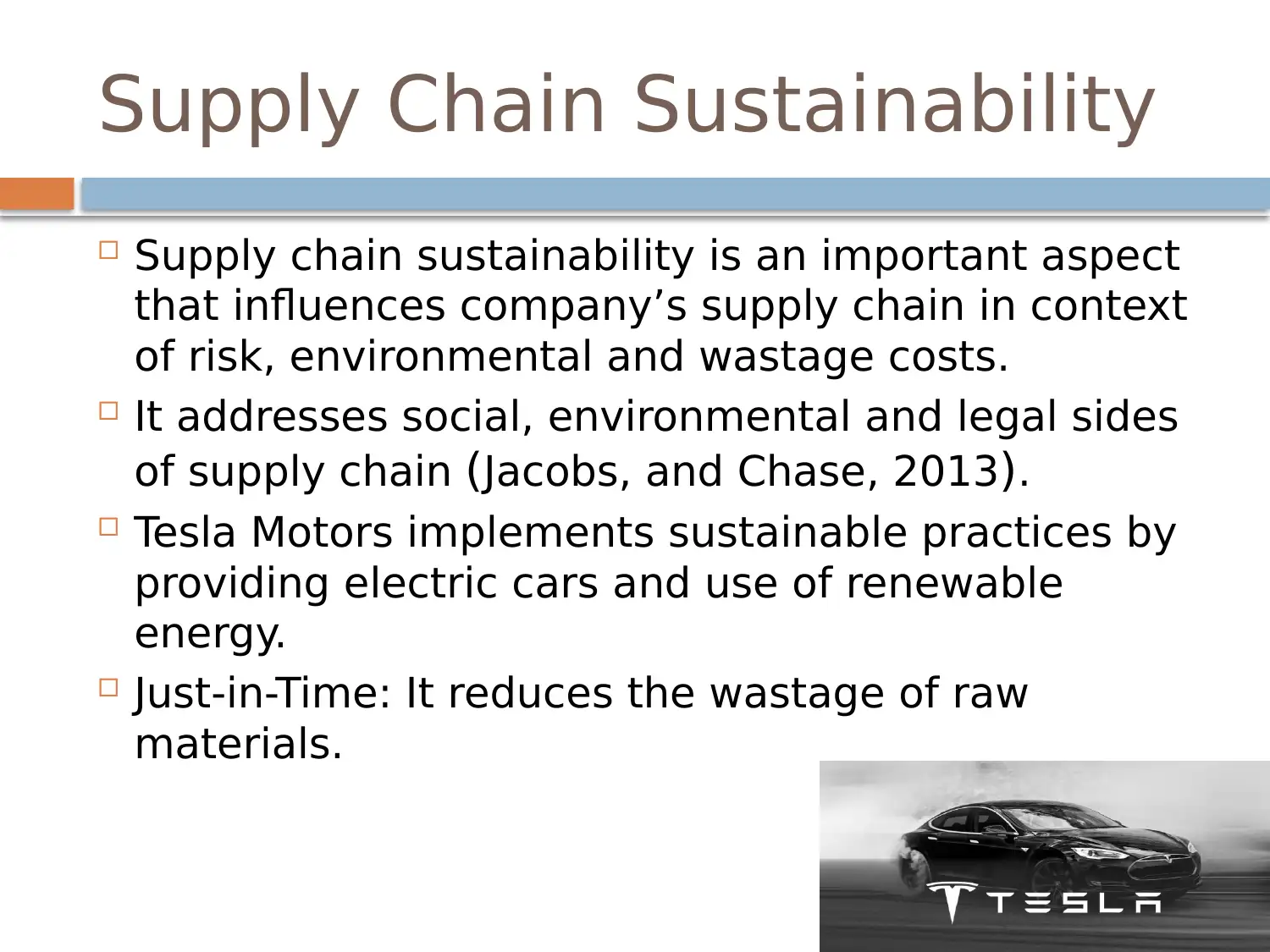

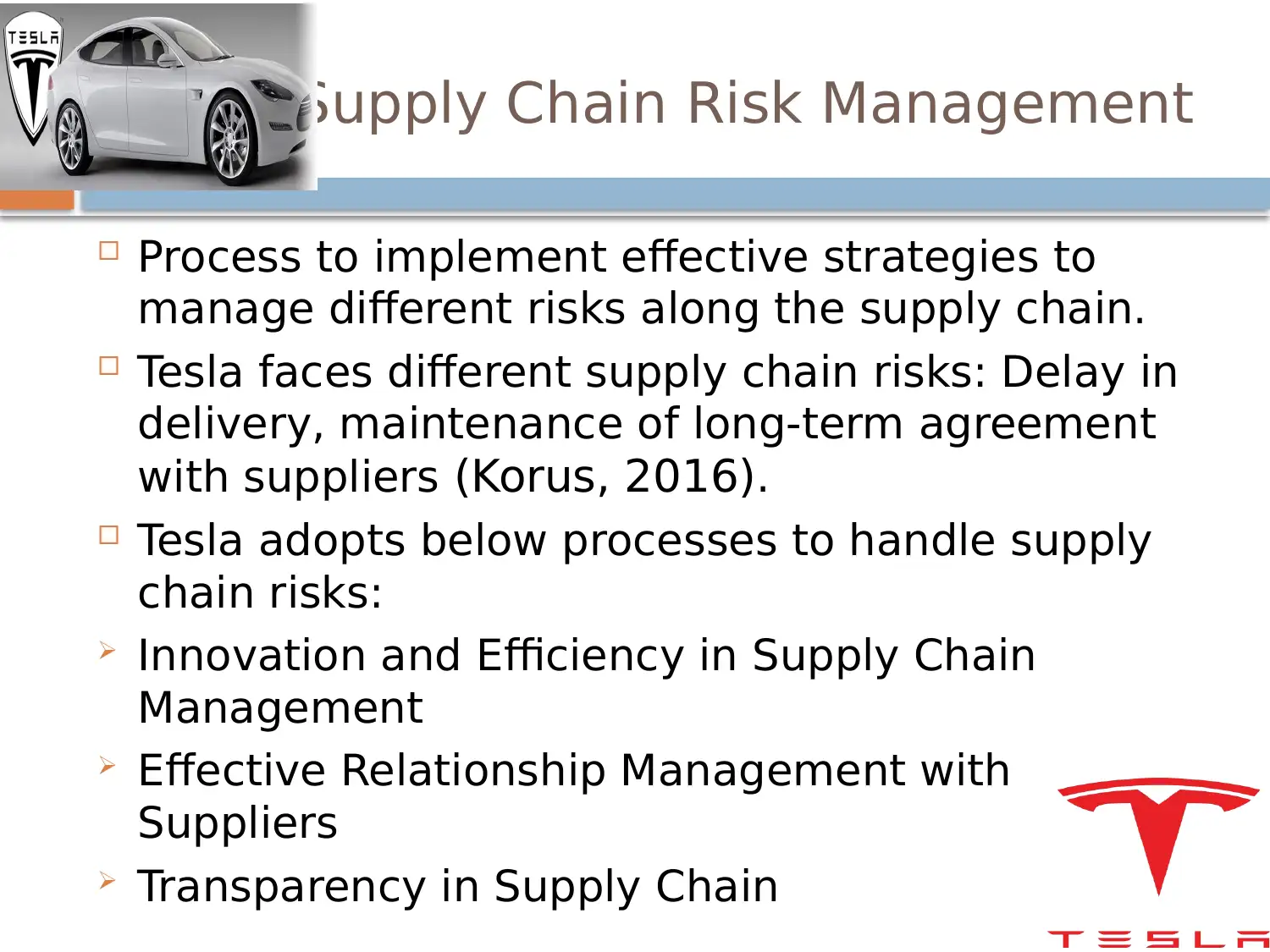
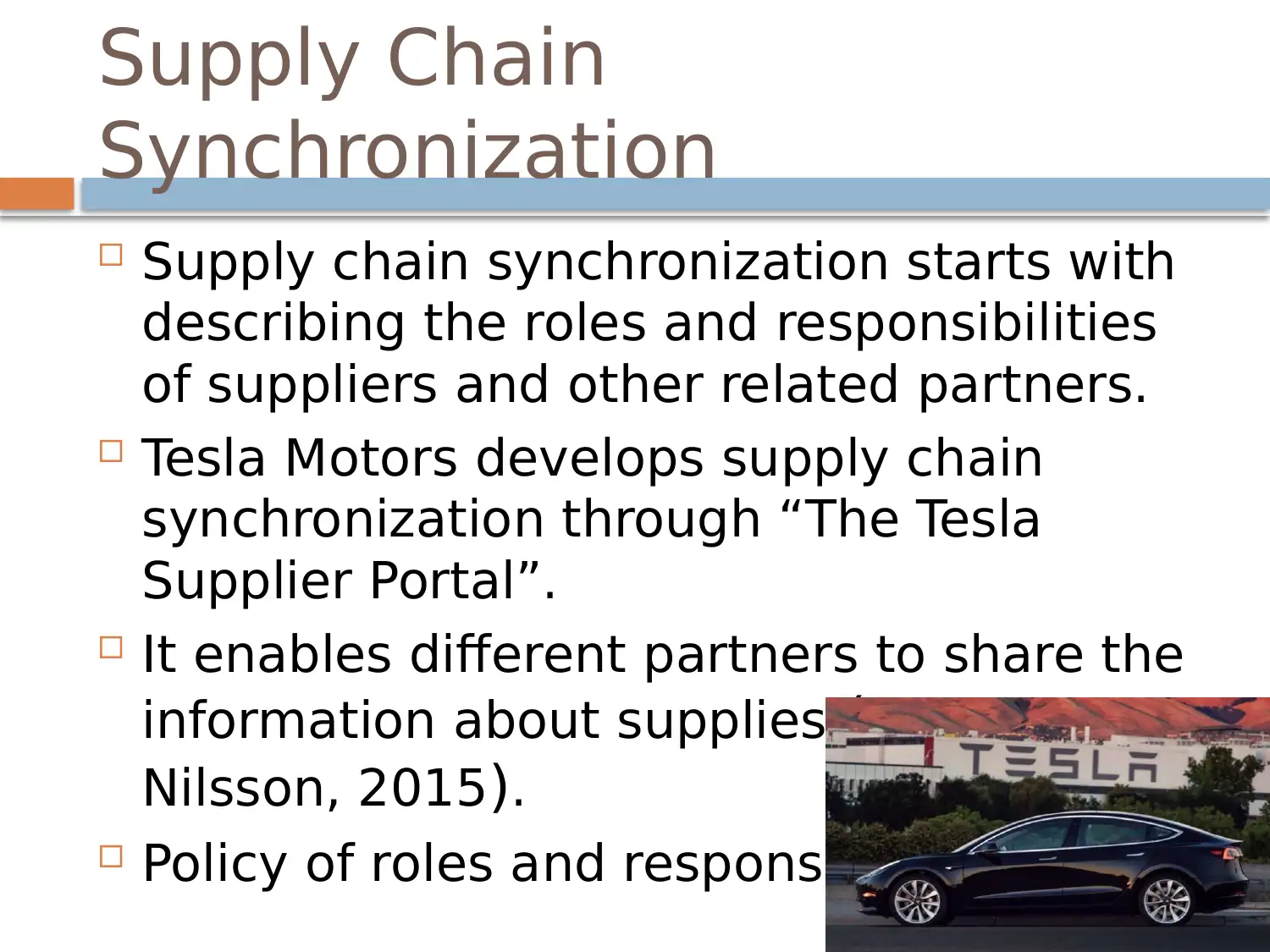
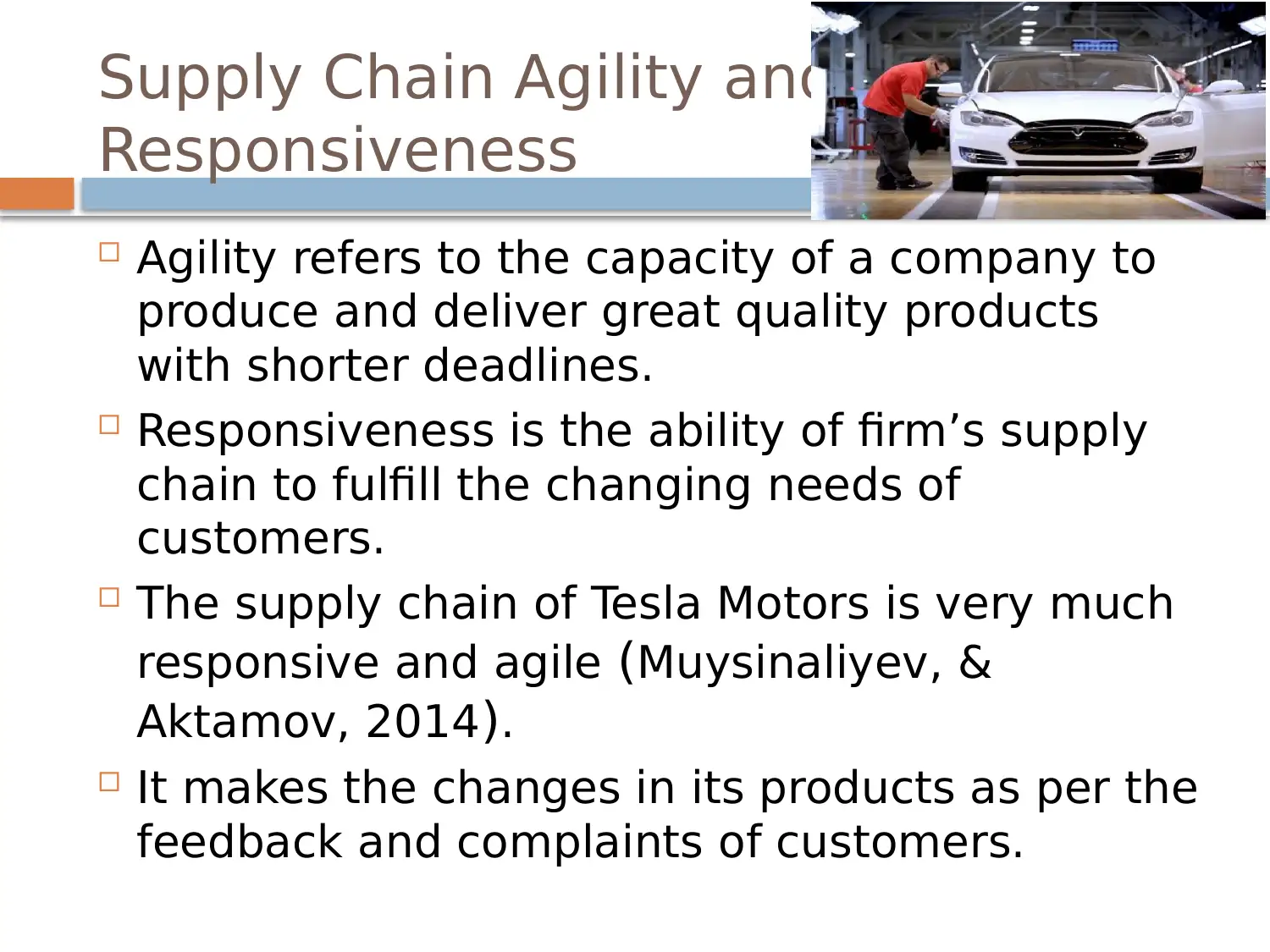
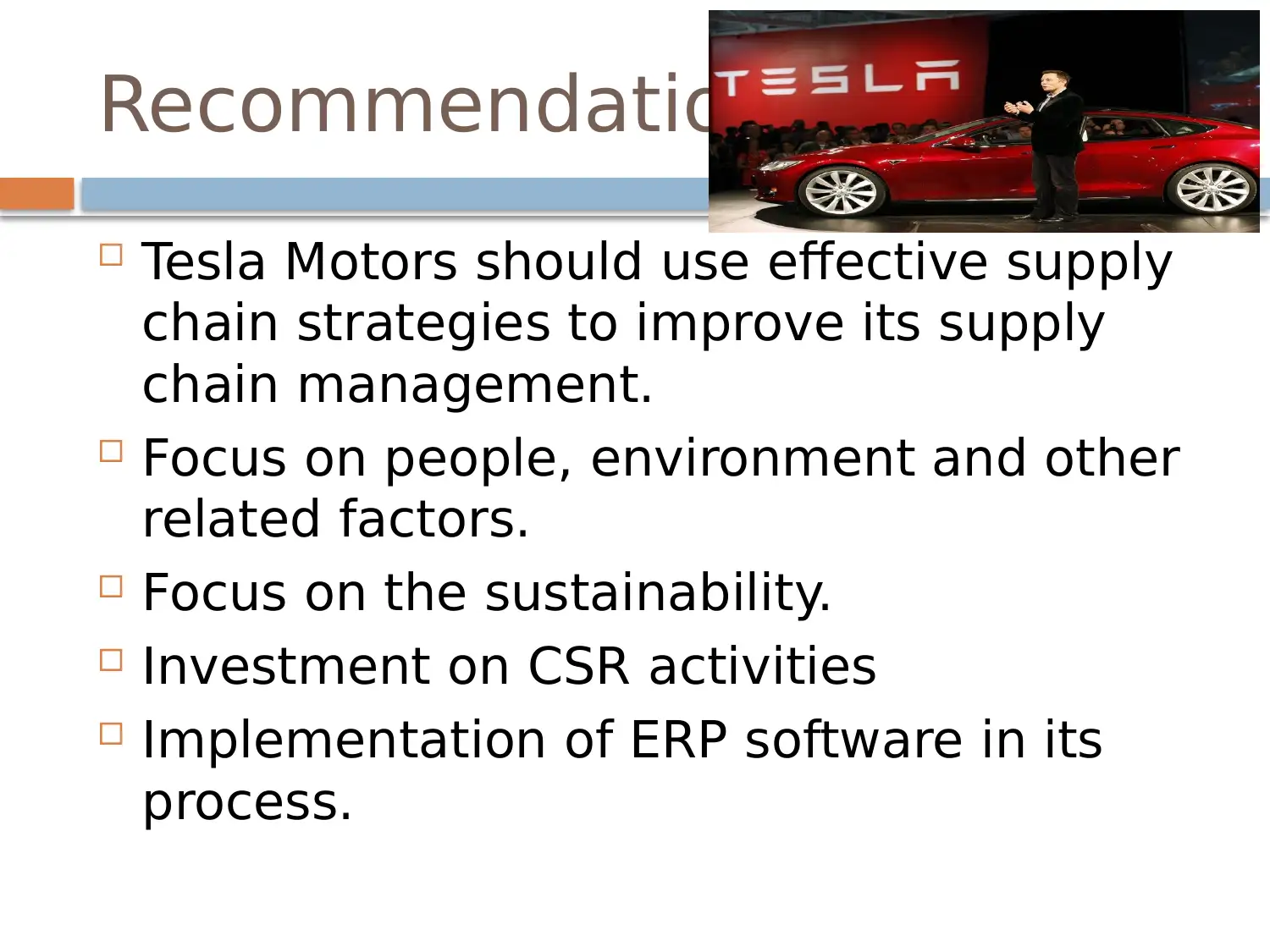
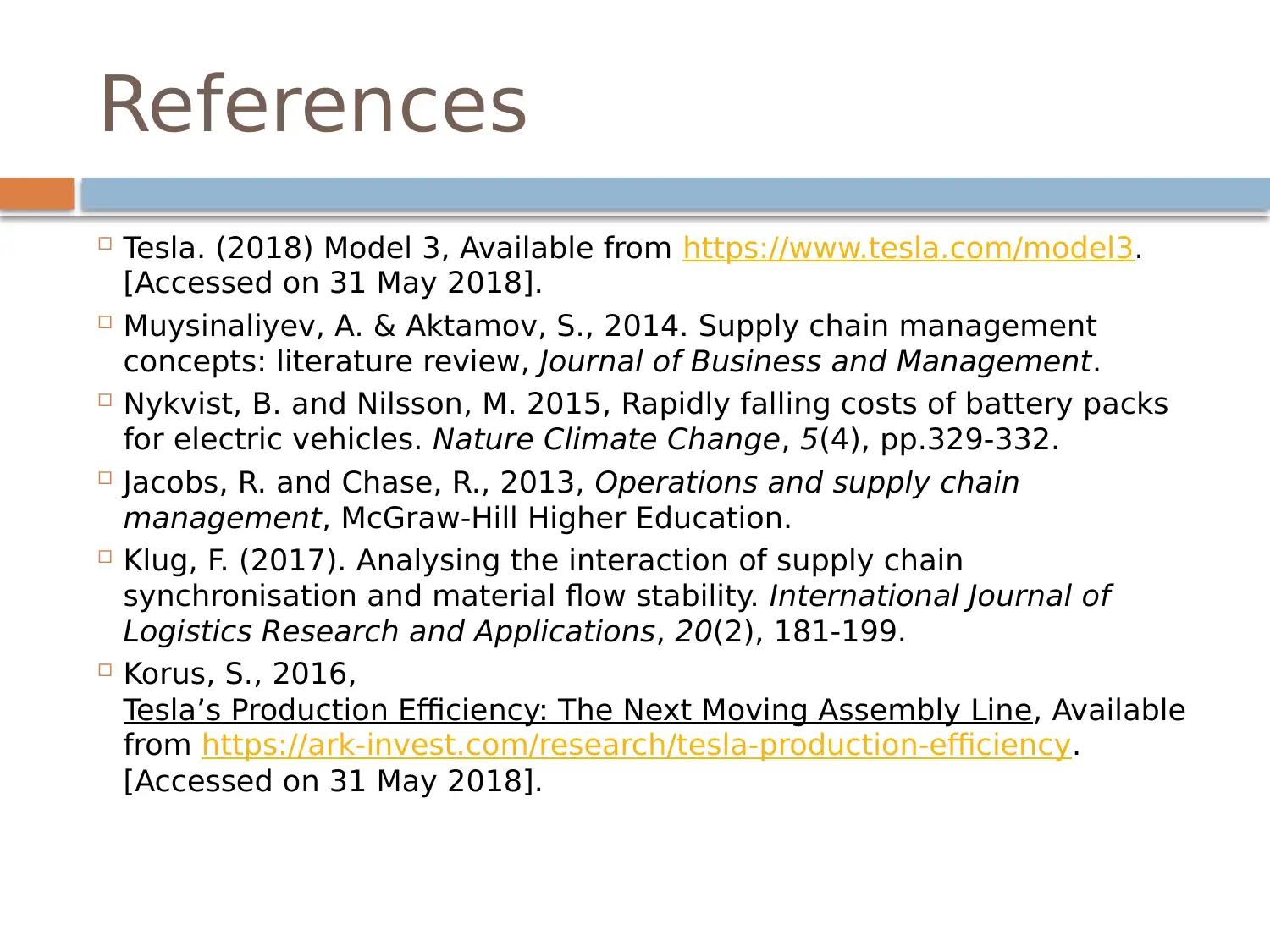


![[object Object]](/_next/static/media/star-bottom.7253800d.svg)